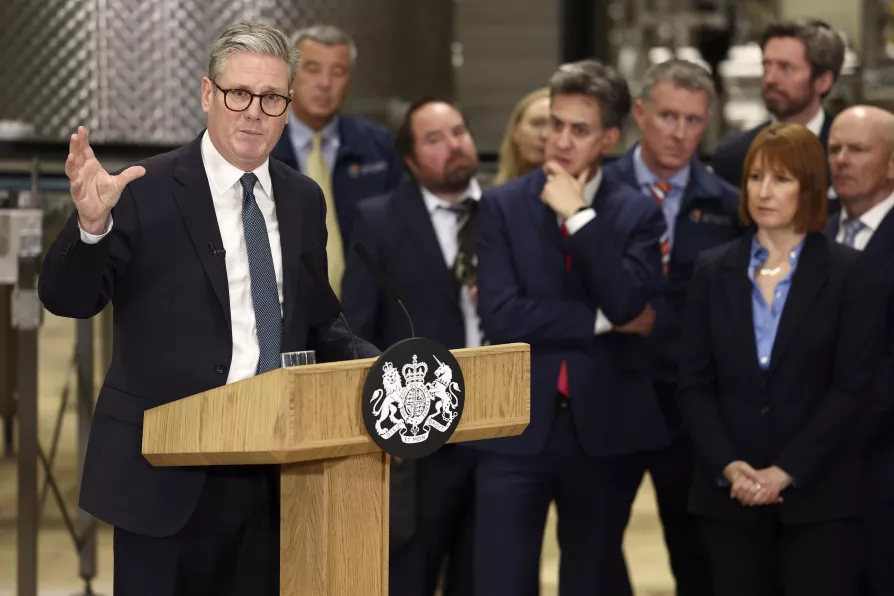
 Prime Minister Keir Starmer gives a speech during a visit to a manufacturing facility in Chester, October 4, 2024
Prime Minister Keir Starmer gives a speech during a visit to a manufacturing facility in Chester, October 4, 2024
“KIDS drunk on power.” That was the assessment of a veteran Labour MP in the early days of the election campaign, when asked who was behind the frenzied last-minute purge of socialist candidates, with long-standing and respected parliamentarians among those targeted.
The weekend resignation of Keir Starmer’s chief of staff Sue Gray, following weeks of hostile briefings against her from within Downing Street, show the factional viciousness that characterised Labour in opposition continues to consume it in government.
The stream of leaked grievances over salary levels and missing, or unsatisfactory, job contracts for political advisers reflect what Labour government means for too many of Starmer’s cronies: a distribution of rewards for loyalists, more interested in jockeying for position than changing the country.
The victory of Morgan McSweeney, new chief of staff, is a win for the right-wing factionalists behind the internal witch hunts, the silencing of party branches and CLPs, the stitch-ups that rid Labour in power of committed, principled and talented politicians from Jamie Driscoll to Faiza Shaheen.
Does it matter? If so mainly because of the lesson that those with the means to influence this government from the inside, above all Labour MPs and the affiliated trade unions, can draw from it: it is further proof that the Starmer gang are unserious political figures and if Labour is going to change Britain for the better the impetus is not going to come from the top.
The leader of one affiliated union railed at No 10’s “political ineptitude” at last month’s party conference. It is startling for a government in its first months in office, one gifted with an enormous parliamentary majority, to be so unpopular and so dysfunctional.
Starmer already polls as less popular than Rishi Sunak, the Tories’ last gasp at the fag end of 14 years of misery.
He is already associated in the public eye with corruption through his willing accumulation of fancy clothes, specs and lavish hospitality from the super rich, a scandal only someone totally indifferent to the poverty and inequality that blight modern Britain could have failed to see coming.
His Chancellor has made headlines mainly for holding children below the poverty line and throwing pensioners under the bus. Public perceptions are of a cruel and crooked government.
People are not fools, and most can see that political ineptitude stems from political bankruptcy.
Aside from one or two policy areas, Labour simply doesn’t offer the change that is forever on Starmer’s lips: it isn’t pledging restorative investment in crippled public services, it isn’t listening to the popular demand for nationalisation of water or energy, and when it comes to privatisation dressed up as “NHS reform,” we’ve heard it all before. No wonder it managed to lose half a million votes between 2019 and 2024 even against a car crash of a Tory government.
On the social care crisis, Labour is even less ambitious than were the Conservatives, actually dropping their proposed cap on the care costs borne by individuals: its attitude to the elderly and vulnerable begins to look faintly sinister when combined with its eagerness to legalise assisted dying.
Labour is consumed by greed and infighting because of the lack of a unifying mission for government. Its leader lied his way to the top of the party and stripped it of its transformative vision, not through political persuasion but by silencing debate and expelling critics. Now he and his wingmen are out of their depth at a time of profound social, economic and environmental crisis.
MPs must not keep being cowed into serving as mute voting fodder for this hapless bunch. More need to raise their heads above the parapet and demand Labour improves its offer: if not, not only will they be facing the dole queue at the next election, but they risk opening the door to an angry and aggressive far right.














